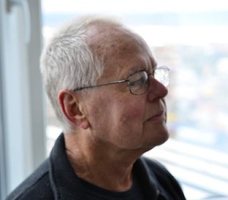

Hypnosis has kept very strange company over the years. It’s been associated with magic, with sorcery, with the devil, with anaesthesia. And, if we look at the way magicians do their magic, magicians are characteristically, charismatic male figures, who appear and make very dramatic gestures so that they can work their magic on some passive recipient.
This association with magic lives on, where stage hypnotists are very powerful, charismatic creatures, usually male, who do weird things to some passive recipients, who feel compelled to surrender to the will and the strength of the stage hypnotist.
This also persists in traditional approaches to hypnosis in which the hypnotist, usually a male, takes on a very commanding position, is an expert. And with great authority, tells their subject, “You are doing this! You will get sleepy! You will close your eyes!”
There was a wonderful expression of this in an old black and white movie of Dracula where Dracula was confronting Van Helsing, who had caught up with him. Dracula, who was played by a Hungarian opera singer, Bela Lugosi, stands there with his black cape and piercing eyes, looks directly into Van Helsing’s eyes, makes gestures and says very dramatically, “Come … come!”
It’s rather amusing as we see Van Helsing looking a little confused and quite close to submitting to the power of Dracula’s hypnotic gaze, but managing to shake himself out of it and regain his own autonomy. Dracula replies by saying, “You have a very strong will!”
It’s rather quaint, but this idea of a hypnotist, even a hypnotherapist having to have a stronger will and overpower the weaker, passive subject is still, unfortunately persisting.
Sorcery is rather different. In sorcery, the power of sorcery is in the spells. You can go into any new age book shop and buy a book of spells. It’s then simply a matter of the person wanting to use the spells to speak the words. The power is in the words. It has nothing to do with the speaker. Anyone can do it. All that’s needed is to speak the words perhaps with some ritual with chicken feet. The sorcery happens from the power of the words which affect some passive, perhaps not even aware victim, who then is taken over by the power of the words of the spell.
To my regret, this still persists in a lot of hypnotic work in the form of hypnotic scripts where the person comes in for hypnosis and the therapist says, “What’s the problem?” When the client says, “I've got a problem with this, that or the other … I can't sleep or I've got pain”, the therapist finds a book of hypnotic scripts, looks up the scripts and then simply, having put the client into a hypnotic state, reads the scripts as if the scripts have the power.
It might be relevant to have a standard script, if we could find a standard person. In all my years as a doctor and a therapist, I haven’t met one yet. So there's a very severe limitation that comes from relying just on rigid scripts and the power of their words.
Another association that hypnosis has is with general anaesthetics. Both became popular just over 100 years ago and a lot of the jargon of general anaesthetics has crept over into the jargon of hypnosis so that, in a lot of hypnotic circles, there is talk of putting someone to sleep, putting them out, putting them under, making them unconscious so then the person will be unaware of what’s happening.
As with a general anaesthetic, there are fears. Will it work? There's nothing worse than having an operation when the anaesthetic doesn’t work. Another concern is will I wake up? Will I be permanently entranced in the same way that there is a worry about anaesthesia - will I wake up at all?!! Also, there is a worry about will I say something that I’ll later regret? Will I behave badly? These concerns in relation to hypnosis are a direct result of the fallacious connection between hypnosis and general anaesthetic.
Hypnosis then still evokes a popular response of being overpowering, of being overpowered, of loss of control, and so, fear. It’s regarded as a special way of working in therapy. In Australia, there are still some insurance companies that require a higher premium for a therapist using hypnosis, presumably because of the additional danger that goes with something so powerful as hypnosis. In Australia, some states, until recently, had very strict restrictions on who could or who could not use hypnosis. Fortunately, these absurd restrictions are now becoming redundant.
I like to joke with people learning hypnosis with me that, if they were to meet some of their friends and say to their friends, “I'm learning about hypnosis,” to see their friends’ response. The response can often be absurd, even from an otherwise intelligent person, who looks away and says, “Don’t do that. Are you doing that to me now? Don’t look at me that way,” as if they are terrified of being taken over by the “hypnotic gaze”.
Hypnosis is not then a way of overpowering someone. It’s not a way of controlling them. It’s not a function of the power of the therapist. It’s not a function of the power of the words. It has nothing to do with being unconscious.
What then is hypnosis? I haver found, in all the years I've been exploring this that there is no satisfactory agreement amongst experts about what hypnosis really is.
Freud used hypnosis all those years ago and gave it up for free association and likened hypnosis to falling in love. Erickson said that, for him, that hypnosis was a special form of communication between client and therapist. And both of them emphasised the relational aspect, which points to one of the marvellous benefits of using hypnosis.
Next - the common everyday trance.
